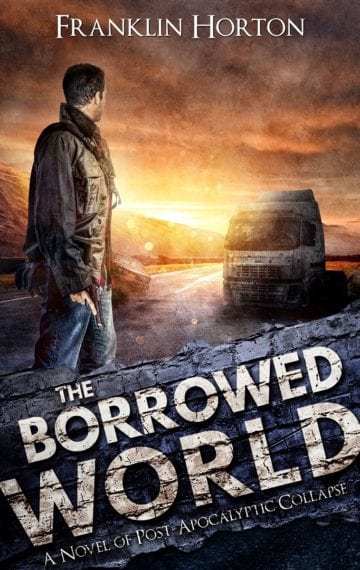
A genre-topping survival novel, The Borrowed World reached #1 in both Post-Apocalyptic Science Fiction and Dystopian Fiction, spawning multiple tie-in series containing over a dozen books.
Like a lot of people, Jim Powell thought that the country was overdue for a reset. Some days he had to admit that he even longed for it, wanting nothing more than to be free of the news cycle, the noise, and politics of the day. He knew such an event could bring tough times but he thought he was ready.
As a prepper, he’d prepared his home to sustain his family in a world without power. He had stored sufficient supplies to last them for years. If the collapse happened to start when he was on the road for his job, he even had a “get home plan” and a pack full of gear to help him survive the journey.
But sudden change on a national level can mean chaos, violence, and death. In this case it came in the form of a coordinated nationwide terror attack against the infrastructure of the United States, leaving most of the country without access to power, fuel, communication, and life-sustaining supplies.
In his effort to survive the world he’d practically yearned for, Jim will be forced to stare down the barrel of a gun just as often as he wields one in self-defense. He will lose as many people as he saves. Every victory will come at a substantial cost. Even as he helps his friends and family survive, he will struggle with the nagging, persistent thought that in some ways he is responsible for their misery and suffering because he wanted this to happen.
While The Borrowed World and it’s subsequent books include realistic, detailed survival information, this series isn’t about glorifying the tools, gear, and guns that keep these people alive. It’s about the complex emotional and social struggles faced by a group of people who continue to find ways to survive when the world around them becomes an ocean of grief, suffering, and death. There are characters you will learn to love like family and others who will make you want to crawl into the book and kill them yourself.
In his continual struggles with the moral issues of survival, Jim Powell comes to understand that people have to find happiness, humor, and purpose even in the bleakest of worlds in order to retain their humanity and thrive.
